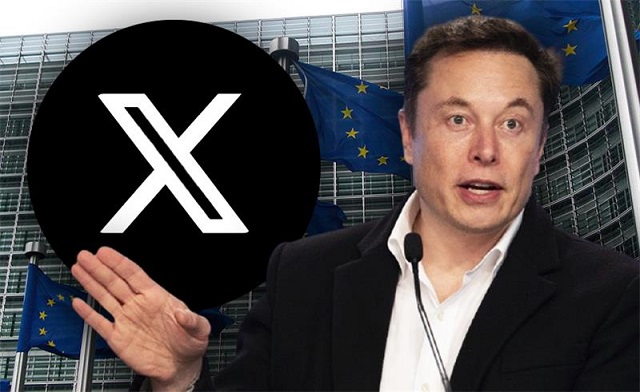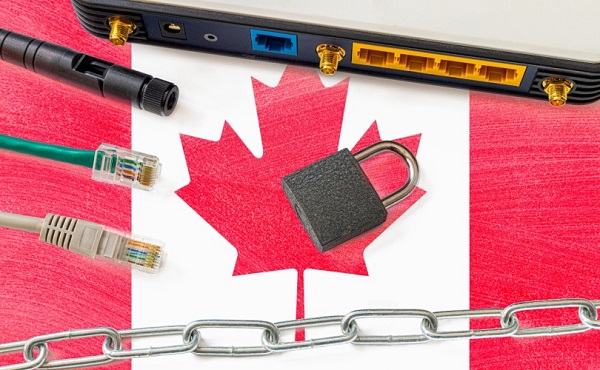Censorship Industrial Complex
Elon Musk said the EU offered X an ‘illegal deal’ if it would quietly censor speech

From LifeSiteNews
‘The European Commission offered 𝕏 an illegal secret deal: if we quietly censored speech without telling anyone, they would not fine us,’ Elon Musk wrote on July 12.
Elon Musk has said that the European Union (E.U.) offered his social media platform X an “illegal deal” to quietly censor speech so the company would not get fined.
“The European Commission offered 𝕏 an illegal secret deal: if we quietly censored speech without telling anyone, they would not fine us,” Musk wrote on X on July 12.
“The other platforms accepted that deal. 𝕏 did not,” he added.
The tech billionaire posted these comments in response to a post by Margrethe Vestager, the Vice-President of E.U.’s Digital Commission. She wrote that X “doesn’t comply with the DSA [Digital Service Act] in key transparency areas.”
Musk announced he will take the E.U. “to a very public battle in court, so that the people of Europe can know the truth.”
Thierry Breton, the E.U.’s Commissioner for Internal Market, responded to the tech billionaire, denying the existence of a “secret deal” offered to X and other social media platforms.
“There has never been — and will never be — any ‘secret deal.’ With anyone,” Breton insisted.
“The DSA provides X (and any large platform) with the possibility to offer commitments to settle a case.”
“To be extra clear: it’s *YOUR* team who asked the Commission to explain the process for settlement and to clarify our concerns.”
“We did it in line with established regulatory procedures,” he continued. “Up to you to decide whether to offer commitments or not. That is how rule of law procedures work.”
The E.U. introduced the Digital Service Act (DSA) in August 2023. It grants the E.U. Commission the power to impose heavy fines on large social media platforms operating in the E.U. if they do not comply with its rules on so-called “disinformation” and “hate speech.” Back in August last year, Breton even threatened to shut down social media platforms if they do not comply with the rules in the case of civil unrest, like the riots in France at the time.
As former Trump State Department official Michael Benz pointed out, the E.U. collaborated closely with the left-wing, globalist news rating organization NewsGuard, whose personnel is entangled with the U.S. intelligence agencies and other parts of the U.S. government.
In 2021, the Department of Defense awarded NewsGuard $750,000 for its project “Misinformation Fingerprints,” which aims to combat what it calls “a catalogue of known hoaxes, falsehoods and misinformation narratives that are spreading online.”
Censorship Industrial Complex
Pro-freedom group to expose dangers of Liberal ‘hate crime’ bill before parliamentary committee

From LifeSiteNews
Canada’s Liberal justice minister has confirmed that the legislation would allow a person to be criminally charged for social media posts deemed offensive by the government.
A top Canadian pro-freedom group has been asked to testify regarding the dangers of the Liberals’ proposed internet censorship legislation.
In an October 28 press release, the Democracy Fund (TDF) announced that the Standing Committee on Justice and Human Rights has invited them to appear at the House of Commons to debate Bill C-9, which experts have warned could kill free speech in Canada.
“Our lawyers have extensive experience defending Canadians accused of breaching speech codes or uttering speech deemed ‘offensive’ by authorities,” TDF litigation director Mark Joseph stated. “We look forward to sharing our legal expertise and concerns about Bill C-9 with the Committee.”
Bill C-9, the Combating Hate Act, has been blasted by constitutional experts as allowing empowered police and the government to go after those it deems have violated a person’s “feelings” in a “hateful” way.
Bill C-9 was brought forth in the House of Commons on September 19 by Justice Minister Sean Fraser. The Liberals have boasted that the bill will make it a crime for people to block the entrance to, or intimidate people from attending, a church or other place of worship, a school, or a community center. The bill would also make it a crime to promote so-called hate symbols and would, in effect, ban the display of certain symbols such as the Nazi flag.
Canada’s Liberal justice minister has confirmed that the legislation would allow a person to be criminally charged for social media posts deemed offensive by the government.
Currently, the legislation is undergoing debate as Canadian lawmakers discuss how best to frame and implement the bill. Issues with the legislation, as pointed out by TDF, include “broad and undefined language” that could allow for widespread censorship online.
TDF warned that the bill “could be used to justify increased censorship and restrict Canadians’ rights to peacefully assemble, protest, and speak freely, particularly on digital platforms.”
The Committee meeting, scheduled for November 6, is a crucial part of Parliament’s review process before the bill continues to its third reading in the House of Commons.
TDF’s warnings against the legislation echo statements from various pro-freedom legal groups across Canada.
As LifeSiteNews previously reported, Justice Centre for Constitutional Freedoms (JCCF) president John Carpay has warned that Canada will be a “police state by Christmas” if lawmakers pass three new bills introduced by the federal Liberal government of Prime Minister Mark Carney.
Carpay further predicted that Bill C-9 would “empower police” and the government to go after those it deems have violated a person’s “feelings” in a “hateful” way.
The proposed legislation mirrors a movement in Germany to restrict sharing controversial or anti-government content online by arresting citizens who posted content deemed ‘hateful’ by the German government.
As LifeSiteNews previously reported in June, German authorities conducted more than 180 operations across the country, targeting individuals accused of spreading hate and incitement online – most of them tied to content considered far-right.
Censorship Industrial Complex
Canada’s justice minister confirms ‘hate crimes’ bill applies to online content

From LifeSiteNews
Individuals could be criminally charged for social media posts or other online content deemed offensive by the government under the Combating Hate Act.
Canadian Justice Minister Sean Fraser admitted that his new “hate crime” bill would indeed allow a person to be criminally charged for social media posts deemed offensive by the government.
Recently asked about Bill C-9, the Combating Hate Act, Fraser said the bill would indeed apply to certain online content that involves the “willful promotion of hatred.”
“Generally speaking, the law will apply equally online as it does in real communities,” he said, adding, “just in the limited circumstances where there is the willful promotion of hatred against someone.”
As reported by LifeSiteNews, Bill C-9 has been blasted by constitutional experts as allowing empowered police and the government to go after those it deems have violated a person’s “feelings” in a “hateful” way.
Bill C-9 was brought forth in the House of Commons on September 19 by Fraser. The Liberals have boasted that the bill will make it a crime for people to block the entrance to, or intimidate people from attending, a church or other place of worship, a school, or a community center. The bill would also make it a crime to promote so-called hate symbols and would, in effect, ban the display of certain symbols such as the Nazi flag.
While being questioned by Conservative MP Andrew Lawton about Bill C-9, Fraser was asked if the new law would “affect what people can say and write on the internet” and also if people could be retroactively punished for online comments made today.
In reply, Fraser said, “The only circumstance where you could imagine some online comment attracting scrutiny under this law would attach to behaviour that is criminal today but would be punished less severely.”
He said that “(t)he willful promotion of hate is a crime today, but we want to recognize a distinct charge where that same behaviour uses certain symbols of hate to bring a higher degree of culpability.”
John Carpay of the Justice Centre for Constitutional Freedoms (JCCF) has blasted Bill C-9 as something that would “empower police” and the government to go after those it deems have violated a person’s “feelings” in a “hateful” way.
Also, as reported by LifeSiteNews, Conservative MP Leslyn Lewis called out the hypocrisy of Bill C-9 for being silent regarding rising “Christian hate.”
Lewis has warned before that Bill C-9 will open the door for authorities to prosecute Canadians’ speech deemed “hateful possibly.”
Carpay also lamented how the bill mentions “rising antisemitism” but says nothing about the arson attacks on Catholic and Christian churches plaguing Canada.
“Anti-Catholic hate is obviously not on the minister’s radar. If it were, he would have mentioned it when introducing the Combating Hate Act,” Carpay wrote.
Since taking power in 2015, the Liberal government has introduced numerous new bills that, in effect, censor internet content and restrict people’s ability to express their views.
-

 Alberta18 hours ago
Alberta18 hours agoFrom Underdog to Top Broodmare
-

 International1 day ago
International1 day agoPrince Andrew banished from the British monarchy
-

 Business1 day ago
Business1 day ago“We have a deal”: Trump, Xi strike breakthrough on trade and fentanyl
-

 Alberta1 day ago
Alberta1 day agoProvince orders School Boards to gather data on class sizes and complexity by Nov 24
-

 Business2 days ago
Business2 days agoCanada’s attack on religious charities makes no fiscal sense
-

 Bruce Dowbiggin2 days ago
Bruce Dowbiggin2 days agoGet Ready: Your House May Not Be Yours Much Longer
-

 Crime1 day ago
Crime1 day agoCanada Seizes 4,300 Litres of Chinese Drug Precursors Amid Trump’s Tariff Pressure Over Fentanyl Flows
-

 National1 day ago
National1 day agoWatchdog Presses Ottawa to Release Hidden Lobbying Rulings









